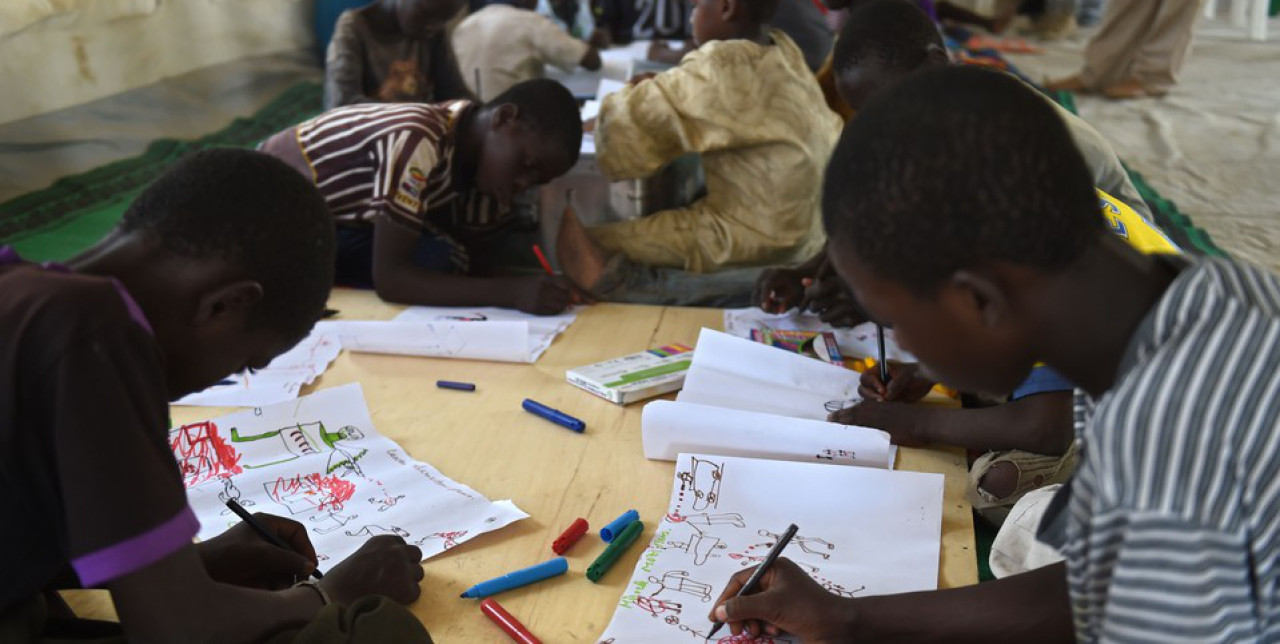16-01-2018 | di COOPI
Niger: education and sport to restore peace of mind
Just outside the Kabelawa Recasement camp for refugees and evacuees, approximately 60 kilometres from Diffa, a group of boys plays football on a stretch of open land. Next to them, another group is enjoying a game of basketball, whilst the girls sing and dance in a circle. Kids aged between 9-14 sing and play in the multi-sport area, while 15 to 18-year-olds have lessons in Kanuri, the local language, in the room next door. A few yards away, a blue tent – the literacy classroom – is held up with sturdy iron poles.
The scenario described above is part of the activities included in the "Programme addressing essential humanitarian needs regarding the protection and education of children and adolescents hit by the crisis in Lake Chad" , run by COOPI in Niger since the beginning of 2017 and funded by AICS (the Italian Agency for Development Cooperation). It aims to create a protected educational environment and community through both formal and informal education. The project also uses DIAPs ( Dispositif Itinérant d'Appui Psychosocial or Mobile Units for Psychosocial Support), i.e. educational units designed to meet the needs of their young beneficiaries. The aim is to offer schooling to refugees recovering from Boko Haram attacks by constructing temporary classrooms and spaces. The expected results of these activities speak for themselves: almost 4,000 adolescents will benefit from an informal education and “life skills” guidance, not to mention the 380 teachers (mostly from formal education) who will receive supervision and training designed to strengthen their ability to provide their young students with psychosocial support.
Moussa Nouhou Rachid, COOPI Niger’s project assistant, stresses that an informal education “involves using games to help children get over their experience, after the crisis they have had to face”. The traumatic experiences they have been through have put them under enormous stress, and one of the benefits of these “leisure spaces” is that they restore peace of mind, allowing children and adolescents to “feel normal” again. “Boko Haram is what forced us to flee. They cut people’s throats. We’re happy here, we don’t think about it anymore,” says 15-year-old Hassan, while Boulo Adam, 16, adds: “I often missed my home, but thanks to the games and courses COOPI offers, I don’t feel like that anymore.”
---
This article is based on “Des Structures Humanitaires pour les Victimes de Boko Haram au Niger”, published on VOA Afrique.
Header photo: Philippe Desmazes (Agence France-Presse).




 Niger
Niger